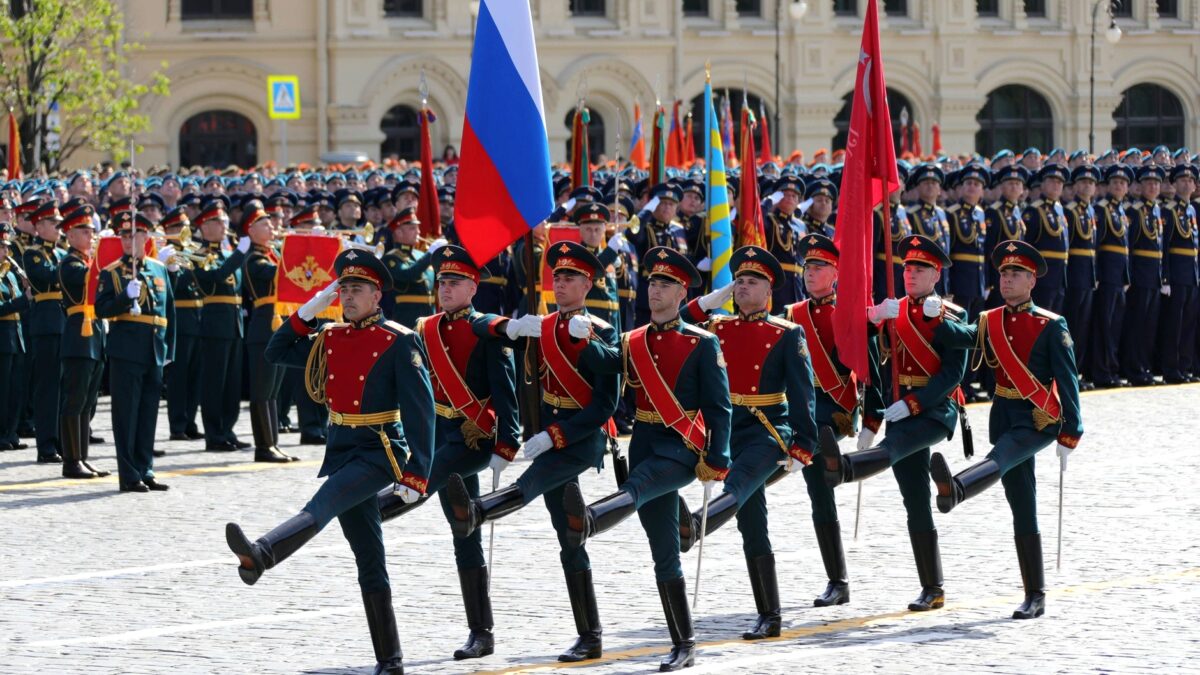On Monday, May 9, Russia will hold its annual celebration marking the defeat of Germany in World War Two. Since 1945, Moscow has hosted a grand military parade in Red Square with dignitaries reviewing the troops from atop the mausoleum than contains Vladimir Lenin’s tomb.
During the long twilight of the Cold War, there was an entire sub-branch of Kremlinology dedicated to analyzing who was invited onto the mausoleum, with its top tier having room for about 20 people. This will be the first Victory Day Parade ever to see Russia involved in a conventional war in Europe, hence, the symbolism of who is, or is not, on the mausoleum may take on greater significance.
Adding further intrigue are reports that Russian President Vladimir Putin is scheduled to soon undergo cancer surgery, temporarily transferring power to Nikolai Patrushev, a former intelligence and security officer who serves as Secretary of the Security Council of the Russian Federation. Patrushev is said to be even more ruthless than Putin.
For the past nine years, General of the Army Sergey Shoygu has presided as the parade inspector. For eight of those years, General of the Army Oleg Salyukov has been the parade commander. Will either reprise their roles, given the crippling corruption and incompetence hobbling the Russian military that occurred under their watch?
Of note, General Valery Gerasimov was the parade’s commander from 2009 to 2012. Putin ordered Gerasimov, the Chief of the General Staff of the Russian Armed Forces, to personally take command of Russia’s renewed offensive to the north of the Donbas Basin in Ukraine’s east, He arrived in the region on April 27. Reports suggest he was wounded in the leg on May 1 by a Ukrainian artillery strike.
But Russia’s war against Ukraine has not gone according to plan. The initial attempt to topple the government in Kyiv in the days after the Feb. 24 invasion failed. Expectations for a quick victory were built on a wobbly three-legged stool.
The first leg was Putin’s own extensively prepared claim that Ukraine isn’t a real nation and that it’s always been a part of Russia. The second leg was Russia’s relatively easy victory in 2014 in Crimea and in the eastern majority ethnic Russian provinces of Donetsk and Luhansk at a time when Ukraine’s pro-Russian president had neglected the armed forces, leaving the nation largely defenseless. The third leg of this now broken stool was built from Gerasimov’s theories on modern so-called “hybrid warfare.”
In speeches and papers, Gen. Gerasimov suggested that successful Russian operations achieve information and psychological dominance over the enemy. To do this, chaos must be sown in the initial period of war — even before the first kinetic shots are fired. This can only be done by ignoring the traditional lines between war and peace, and politics and war. Further, and this is important to Western nations that are now finally sending Ukraine the military equipment, ammunition, and spare parts needed to fight, is the fact that hybrid warfare sees the synergy of chaos (nonlinear and nonmilitary tactics) as no longer merely supporting of conventional force, but equivalent to it.
Thus, the widely reported Russian and Chinese cyber-attack on Ukrainian networks initiated before formal hostilities were a form of chaos-seeding, as well as aggressive exploitation of social media to spread false reports and undermine Ukraine’s standing with Western democracies.
That these hybrid tactics weren’t enough to win on the cheap doesn’t mean that they don’t have value. It simply means that Ukraine, having had a near-death experience in 2014, reformed and upgraded its defenses. Regeneration is an advantage held by representative governments such as Ukraine over security states like Russia. Even imperfect representative governments are more adaptable than the most perfect of security states.
So, Putin is said to need cancer surgery, Gerasimov is wounded, and Russia’s war on Ukraine is faltering. As I look at the situation — more as a former elected lawmaker than as a retired intelligence officer — here are the things I’ll be watching.
First, is Putin truly ill, and will he go under the knife? For such a powerful, paranoid man with many enemies who likely ordered the assassinations of scores of opponents and dissidents, this decision must weigh heavily. Who can be trusted? While he is vulnerable, any one of a number of people could kill him — including Nikolai Patrushev himself.
But the claimed illness brings an upside to Putin. Putin took personal command of the war in late April, handing domestic authority over to Prime Minister Mikhail Mishustin. Putin’s direct involvement in a war that hasn’t panned out, though Russia is firing more long-range missiles deep into Ukraine, means “cancer” could be a graceful exit or a way to salvage a reputation and a retirement. For Putin, the war might be over, though not likely the war itself.
Russians place great significance on special dates, and few dates are more special than May 9. Not long ago it was suggested that Russia’s retooled offensive against Ukraine in the east and the south might have borne enough fruit by May 9 to declare victory, real or symbolic. Those thoughts have sailed through the air like a Russian tank’s turret, landing with a thud in muddy, bloody reality. Thus, this Victory Day Parade will be devoid of triumph.
Watch carefully the Red Square mausoleum for signs of Russia’s future.









